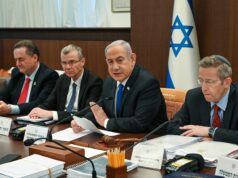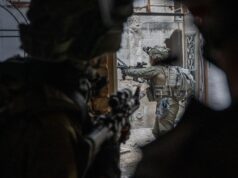Demonstrations against perceived racism toward Israel’s Ethiopian community turned violent over the weekend, injuring at least 13 people. Several thousand Israelis took part in a protest Sunday, highlighting problems stemming from integration, racial discrimination, and police brutality.
Protests remained relatively peaceful during the day and included Israelis many from different cultural and ethnic backgrounds. But by nightfall, a contingent had turned violent: shutting down a major highway in Tel Aviv, overturning cars, throwing stones, and setting fires. Police in riot gear used tear gas and water canons to disperse the crowds as they marched toward City Hall. Police Spokesman Micky Rosenfeld said that “multiple protesters” had been arrested.

Thousands of Ethiopian-Israelis and sympathizers marched in a demonstration that took a violent turn on Sunday. (Photo: AFP) |
The recent demonstrations stem from anger after the beating of Damas Fikadeh, an Ethiopian-Israeli soldier, by Israeli police. In a purported video of the incident posted to YouTube, a police officer can be seen attacking the young man, in army uniform, without visible provocation. The officers involved were suspended pending an inquiry into their behavior.
On Monday, Israeli Prime Minister Benjamin Netanyahu met with Fikadeh in Jerusalem, giving him a hug before a pool of reporters. The PM said he “unequivocally condemns” the use of excessive force by police and promised to bring the officers to justice. Meanwhile, Public Security Minister Yitzhak Aharonovich told Hebrew language media that the officers actions were “a disgrace” and pledged a thorough investigation.
The scale of the weekend protest show complicated divides among different communities in Israeli society. Roughly 120,000 Ethiopian Jews live in Israel; most immigrated through government sponsored programs between 1984 and 1991; followed by a Russian immigration of nearly nearly 1,000,000 – dwarfing the Ethiopian community socially and economically. Initially, many poorly educated Ethiopians had trouble integrating into Israel’s Western culture, although the second generation includes military officers, businessmen, and Miss Israel 2014. The younger generation of darker-skinned Israelis complains, however, of racism and economic disenfranchisement.
Some of the protesters’ complaints echoed other economic grievances aired by mainly middle class Israeli protesters in large demonstrations in 2011.





